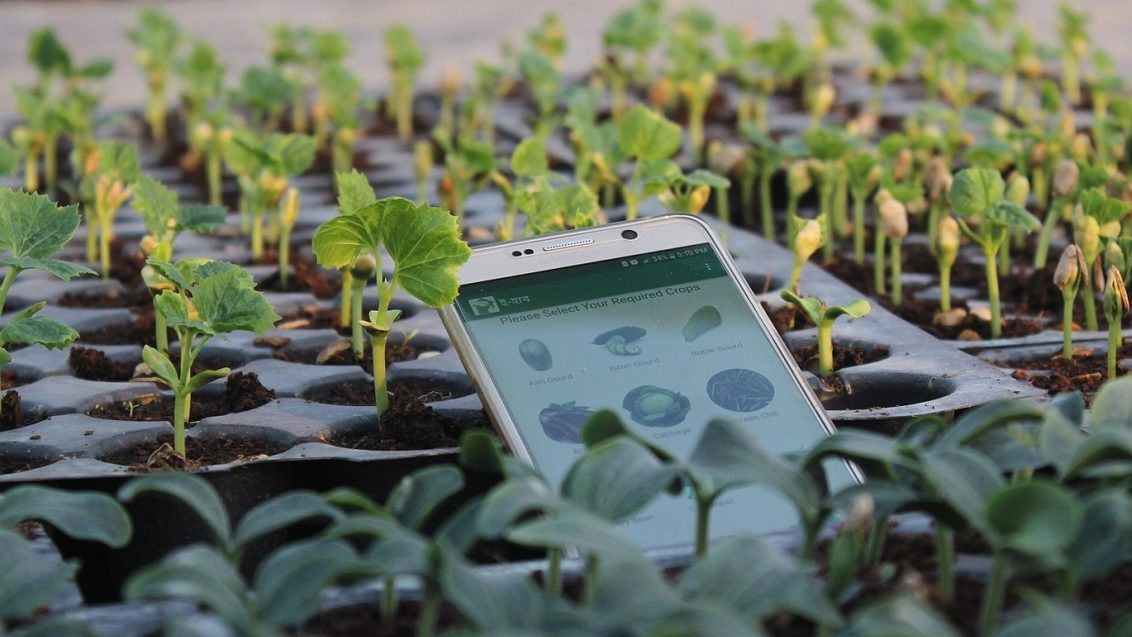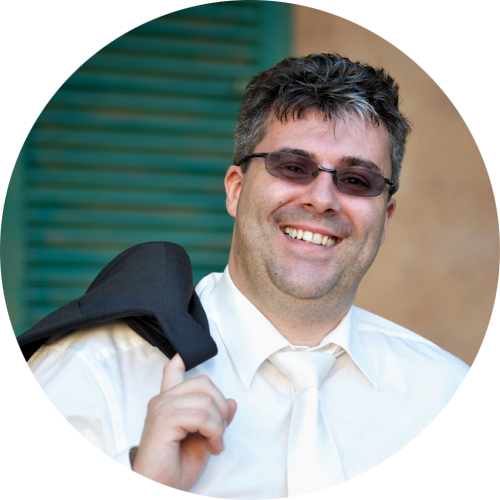Paving the way for new possibilities

Dieses Gespräch fand auf Deutsch statt.
«Digital ag»? The buzzword sounds like hi-tech for large-scale commercial farmers. But our Foundation also sees lots of opportunities for smallholders. There are also challenges, of course. We discussed both with our Smallholder Digital Solutions Lead, Mario Kunz.
Syngenta Foundation: Talking to your neighbors, how would you explain the Foundation's digital activities?
Mario Kunz: We support or optimize farmers' processes with the help of digital technologies. We see ourselves as an incubator for projects in various areas, specifically for smallholders’ needs. These areas include financing and risk minimization, agronomic services and training, as well as seeds development. Digital technologies help provide services at low cost in systems that work sustainably. They also enable us to aim our support at millions of smallholders.
We often hear about “social responsibility”. How can the Syngenta Foundation contribute with digital solutions, when data are often either old or unreliable?
Yes, unfortunately, the availability of good data in developing countries is often a challenge. And this is precisely one of my new starting points. In all our projects, the so-called "digital data footprint" will play a much greater role in the future. What data do we need to make decisions, but also to measure the results correctly? How do we collect data digitally? And how do we ensure integrity, quality and privacy when doing so?
We also work with various international organizations in the development arena. We share data and develop common standards. This way, we can work across systems and don’t all just collect the same info in parallel. In the end, the important thing is that smallholders are offered services that help them improve their livelihoods.
Many smallholders are not very literate, and there isn’t much we can do about it. How does illiteracy limit us digitally?
The good thing is that in the digital space we can also work with pictures, videos, and colors. Another approach is the so-called “aggregation concept”. Our e-Hub model, for example, allows young agri-entrepreneurs to become the voice of smallholders. They can aggregate – i.e. pool – farmers’ demand and their offers. This generates sufficient volume for a sustainable value chain.
So I would say that the challenge of illiteracy doesn’t limit us, but rather makes us more creative in finding solutions.
How disadvantaged are female smallholders in the digital world?
Women are, indeed, at a disadvantage. One example: the mobile phone, especially if it’s a smartphone, can be one of the most important information channels for smallholder farmers. Unfortunately, many smallholder households don’t have one, or if they do, it belongs to the man. This often excludes women from access to valuable information. One solution is to train women and men separately. We’ve had a good experience with this approach.
Where do you see the biggest challenges for the Foundation's digital activities?
One is the transition from pilot to market phase. As a foundation, we can usually do the testing of new technology with internal resources. However, it is often more difficult than expected to scale up, i.e. generate sustainable business models to ensure that the solution works with large numbers of smallholders. To do so, we need partners – and finding the right digital partners is another challenge!
When partners monetize digital solutions, how can we ensure that smallholders’ data aren’t misused?
By committing ourselves and our partners to the high standards of the EU's GDPR, even if these are not required in the countries where we currently operate. Furthermore, smallholders’ data have a value. I believe the farmers should be appropriately compensated. Smallholders can decide whether to accept or reject a digital offer from the Syngenta Foundation; they remain the owners of their data. I also believe that we have a responsibility to educate smallholders in this area.
If data are handled correctly, it’s a win-win situation. In return for his or her data, the smallholder gets a tailored offer, and we create a sustainable, digital ecosystem.
Why do you find the digital world so fascinating?
I've always been tech-savvy. And the digital world is so incredibly dynamic: I started my career without Microsoft Windows and Apple – these days, the first thing my children ask for when arriving somewhere is the Wi-Fi password. A lot has happened since 1990! I think what’s fascinating about digital solutions is that they pave the way for new possibilities and services. In pre-digital times, we had to wait for results or estimate them. Today, we can simulate, understand and adjust them in real-time. My personal mantra is: "data to insights to actions”. If we manage to make digital technologies attractive and profitable for the new generation of young smallholders, we will be well on our way.
Did you ever think that you would end up in agriculture with a degree in IT?
No. (Laughs.) I started my career in banking and retail. However, it was always clear to me that I prefer dealing with customers to just writing code. When I joined Ciba-Geigy* in 1995, it was more by chance than anything else. But I've been happy to stay in this area ever since. And certainly, in the last ten years or so, there’s been so much digital development in agriculture that a digital transformation can and will take place in this sector, too.
Where did you get your passion for smallholder farming?
After ten years with the company, I moved from the internal IT department to Business Development for Africa and Middle East region. That's when I met my first smallholder customer, and that changed my perspective completely. Here, I can achieve or give something back with my know-how and bring about a change. For me personally, it's more satisfying to help lots of smallholders live better lives than to increase the productivity score of a large farm from, say, 95% to 98%. Both are important, but I’ve chosen smallholders.
And what do you do in your spare time?
There, too, I can’t live without “digital”! Our SmartHome is now quite intelligent and automated. I'm pretty proud of everything that's integrated into it. And as well as bits and bytes, my two boys keep me on my toes. As a family, we like to discover new places with the camper. In winter you can find me snowboarding, and in summer diving in the sea.

Mario joined the Foundation in 2020. He had worked the last 6 years at the Syngenta Africa and Middle East Territory as a Business Development and Digital Strategy Lead. He has also held a variety of IT roles at Syngenta and its predecessor companies. Mario holds an Information Science degree at Freiburg Business School in Germany.” He is an expert in remote sensing and digital agronomy solutions and a strong believer that these technologies will have the potential to improve smallholders' lives.
*One of the forerunners to Syngenta and other companies.
